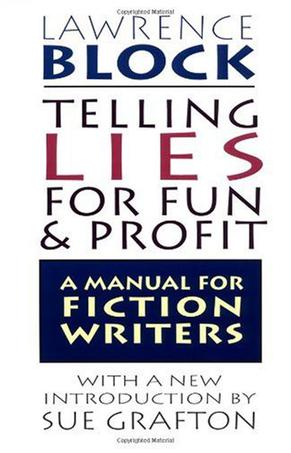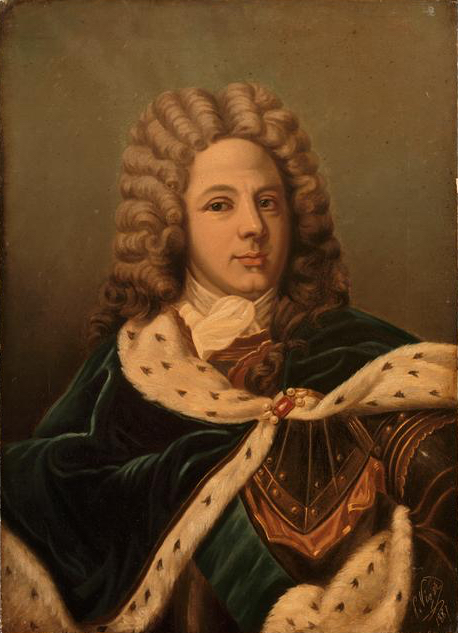Again, she had a point. And I've never forgotten it--my mother was one of the smartest people I've ever known, and she had a way of being right about things. Over twenty years later, I've taken that story out again and am trying to turn it into a novel. I won't mention the title, since the attempt may come to nothing. But I figure after so many years, no one but my husband and our daughters will remember that story, so why not see if the idea will work as a novel? At any rate, the experience has gotten me thinking. Is there a way of knowing which ideas will work best as short stories, which will work best as novels? Obviously, I'm no expert on that subject, at least not according to my mother. So I decided to see what some far more successful writers have to say. Maybe my mother would have respected their opinions. (Then again, maybe not.)
In Telling Lies for Fun & Profit, Lawrence Block scoffs at the notion that novels require stronger seminal ideas than short stories do. The same ideas, he says, can work for either--in fact, short stories always require strong ideas, and novels often don't. He gets more "sheer enjoyment" from writing short stories than from writing novels, but each story "requires a reasonably strong idea, and the idea's used up in a couple of thousand words. I've written whole novels out of ideas with no more depth to them than short-story ideas, and I've written other novels without having had a strong story idea to begin with. They had plot and characters, to be sure, but those developed as the book went along." Most people, Block says, can't come up with enough ideas to make a living by writing short stories; he cites Ed Hoch as an example of one of those rare people who could. "So I take the easy way out," Block says, "and write novels." For most people, he believes, that's the more practical choice. So if you get a good idea for a story, stretch it out into a novel. I think my mother might have agreed.
John Gardner might have agreed, too, at least to some extent. In The Art of Fiction, he discusses several ways of developing an idea for a novel or story. One way is to start with an idea for a climax and then work backwards--how did this event come about? "Depending on the complexity of the writer's way of seeing the event," he says, "depending, that is, on how much background he [or she] feels our understanding of the event requires--the climax becomes the high point of a short story, a novella, or a novel." At the outset, the writer may not know which length will work best: "Writers often find that an idea for a short story may change into an idea for a novella or even a novel."
Gardner does think, however, that these three forms of fiction differ in fundamental ways. A short story usually has a single epiphany, a novella may have several, and a novel may have a completely different structure: "Whereas the short story moves to an `epiphany,' as Joyce said--in other words, to a climactic moment of recognition on the part of the central character, or, at least, the reader . . . the novella moves through a series of small epiphanies or secondary climaxes to a much more firm conclusion." Novels, on the other hand, should avoid a "firm conclusion" and make "some pretense of imitating the world in all its complexity." Gardner takes a swipe at mysteries and other traditional narratives when he says "too much neatness" mars a novel: "When all of a novel's strings are too neatly tied together at the end, as sometimes happens in Dickens and almost always happens in the popular mystery thriller, we feel the novel to be unlifelike . . .a novel built as prettily as a teacup is not of much use." So for Gardner, it doesn't seem to be that some ideas are inherently more suited to short stories than to novels. Instead, the crucial difference may lie in the writer's way of developing and resolving that idea--or, in a novel, of not resolving it.
Elizabeth Bowen, on the other hand, thinks short stories free the writer from the need to achieve the sort of resolution novels demand. In her introduction to the 1950 Faber Book of Modern Short Stories, she says many early English short stories, such as those by Henry James and Thomas Hardy, try to treat the same sorts of "complex and motivated" subjects novels do. That approach, she says, is a mistake: No matter how expertly crafted they may be, short stories that are essentially "condensed novel[s]" will not achieve the "heroic simplicity" that should be their trademark. In such stories, "shortness is not positive; it is nonextension." Consequently, these stories "have no emotion that is abrupt and special; they do not give mood or incident a significance outside the novelist's power to explore. Their very excellence made them a dead end; they did not invite imitation or advance in any way a development in the short story proper."
Bowen considers de Maupassant, Chekov, and Poe among the pioneers who truly broke free from the novel and explored the new, distinctly different possibilities the short story form offers. A short story, according to Bowen, should not begin with a complicated plan for a plot, as a novel might. Rather, it "must spring from an impression or perception pressing enough, acute enough, to make the writer write." Short stories must be carefully written, "but conception should have been involuntary, a vital fortuity. The sought-about-for subject gives the story a dead kernel." Bowen's ideas about the plot and structure of a short story are interesting enough to quote at length:
The plot, whether or not it be ingenious or remarkable, for however short a way it is to be pursued, ought to raise some issue, so that it may continue in the mind. The art of the short story permits a break at what in the novel would be the crux of the plot: the short story, free from the longeurs of the novel, is also exempt from the novel's conclusiveness--too often forced and false: it may thus more nearly than the novel approach aesthetic and moral truth. It can, while remaining rightly prosaic and circumstantial, give scene, action, event, character a poetic new actuality.In fact, she says, the short story may have less in common with the novel than it does with some other art forms: It should have "the valid central emotion and inner spontaneity of the lyric" and should be "as composed, in the plastic sense, and as visual as a picture."
Flannery O'Connor might take issue with Bowen's contention that a short story should spring from "an impression or perception." In both novels and short stories, O'Connor says in "The Nature and Aims of Fiction," "something has to happen. A perception is not a story, and no amount of sensitivity can make a story-writer out of you if you just plan don't have a gift for telling a story." She says the choice between novel and short story may depend primarily on the writer's "disposition." I can't resist the temptation to quote her comparison--or, rather, her friend's comparison--of the experiences of writing these two kinds of narratives: "She says that when she stops a novel to work on short stories, she feels as if she has just left a dark wood to be set upon by wolves." Since novels are a "more diffused form" of fiction, O'Connor says, they may suit "those who like to linger along the way" and have "a more massive energy." On the other hand, "for those of us who want to get the agony over in a hurry, the novel is a burden and a pain."
In another essay, "Writing Short Stories," O'Connor defines a short story as an interplay of character, action, and meaning: "A short story is a complete dramatic action--and in good stories, the characters are shown through the action, and the action is controlled through the characters, and the result of this is a meaning that derives from the whole presented experience." Of these three elements, character (or "personality") is primary: "A story always involves, in a dramatic way, the mystery of personality." Although she says a short story's action must be "complete," her understanding of "complete" definitely doesn't seem to involve the sort of "conclusiveness" Bowen sees as a flaw in many novels. O'Connor describes (without naming) her "The Life You Save May Be Your Own" as an example of "a complete story," even though the action breaks off in a way many readers might find abrupt (to put it mildly). For O'Connor, the story is complete because her exploration of the central character is complete: "There is nothing more about the mystery of that man's personality that could be shown through that particular dramatization." So perhaps writers shouldn't start by deciding whether an idea is better suited to a short story or a novel. Perhaps they should start by deciding if a character is likely to generate a good story. "In most good stories," O'Connor says, "it is the character's personality that creates the action of the story."
Edith Wharton, by contrast, thinks characters are supremely important in novels but not in short stories. As she says in The Writing of Fiction, "the test of the novel is that its people should be alive. No subject in itself, however fruitful, appears to be able to keep a novel alive; only the characters in it can." On the other hand, "some of the greatest short stories owe their vitality entirely to the dramatic rendering of a situation." The differences between characters in novels and those in stories are so great, in Wharton's opinion, that the short story could be considered the "direct descendant" not of the novel but of "the old epic or ballad--of those earlier forms of fiction in all of which action was the chief affair, and the characters, if they did not remain mere puppets, seldom or never became more than types." That seems harsh--did Wharton see the characters in her own "Roman Fever," for example, as no more individualized than "puppets" or "types"? Nevertheless, she insists "situation is the main concern of the short story, character of the novel."
Wharton shrugs off some other ways of deciding whether a subject is suited to a novel or a short story. For example, she says the number of "incidents, or external happenings" doesn't matter much. Many incidents can be "crowded" into a short story. But a subject that involves "the gradual unfolding of the inner life of its characters" isn't right for a short story, and neither is one that involves "producing in the reader's mind the sense of a lapse of time." Short stories should avoid such subjects and shouldn't try to achieve such effects. Instead, they should strive for "compactness and instanteneity" by relying on "two `unities'--the old traditional one of time, and that other, more modern and complex, which requires that any rapidly enacted episode shall be seen through only one pair of eyes." These limits, however, apply only to stories that are truly short; a remark Wharton makes at one point suggests she might have 5,000 words in mind as a typical length. She also mentions an "intermediate" kind of narrative. The "long short story," she says, might be suitable for "any subject too spreading for conciseness yet too slight in texture to be stretched into a novel."
"One of the fiction writer's essential gifts," Wharton maintains, "is that of discerning whether the subject which presents itself to him [or her], asking for incarnation, is suited to the proportions of a short story or a novel." It's too bad the writers quoted here don't offer us more consistent advice on such an essential matter. When I started working on this post, I knew these writers wouldn't agree about everything. I hoped, though, they might agree about something. Alas, that doesn't seem to be the case. If there's even a thread of consensus running through these essays and chapters, I missed it. At least I found the disagreements interesting; at least they pushed me to think about what I should focus on as I try to make that decades-old short story work as a novel. What about you? Do you agree with some of these writers more than with others? Or do you have other criteria for deciding whether an idea is better suited to a short story or a novel? I'd love to hear what you think.
# # #
Gardner discusses the novella as well as the short story and the novel; Wharton
discusses "the long short story. This year, the Anthony ballot adds the
novella (8,000 to 40,000 words) to the usual list of categories. So
I'll just casually mention that my "The Last Blue Glass" (Hitchcock's,
April 2016--9,470 words) would qualify as either a short story or a
novella. So if your short story dance card is already full, you might
consider "The Last Blue Glass" as a novella. You can read it here.










































